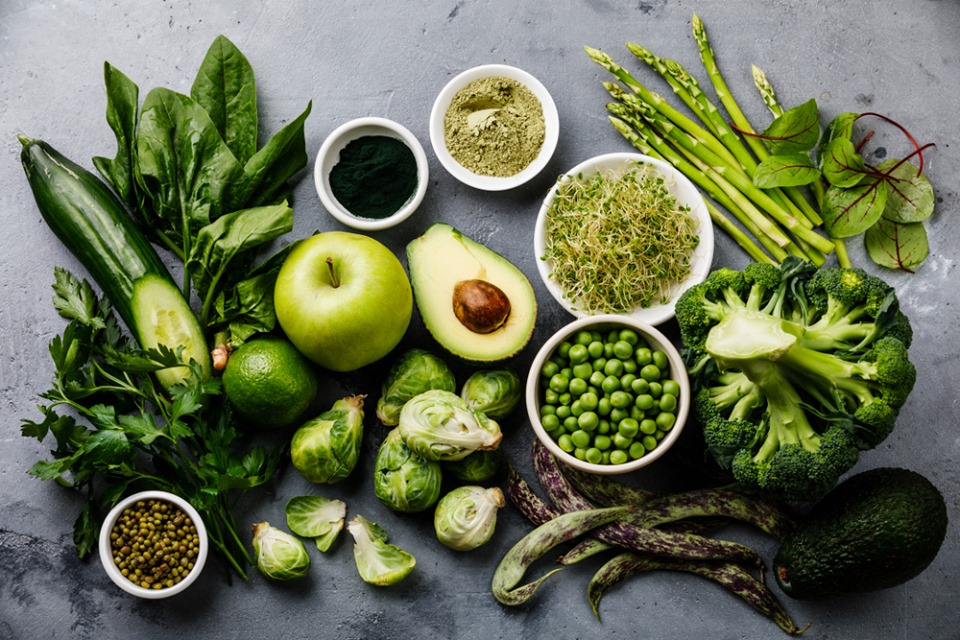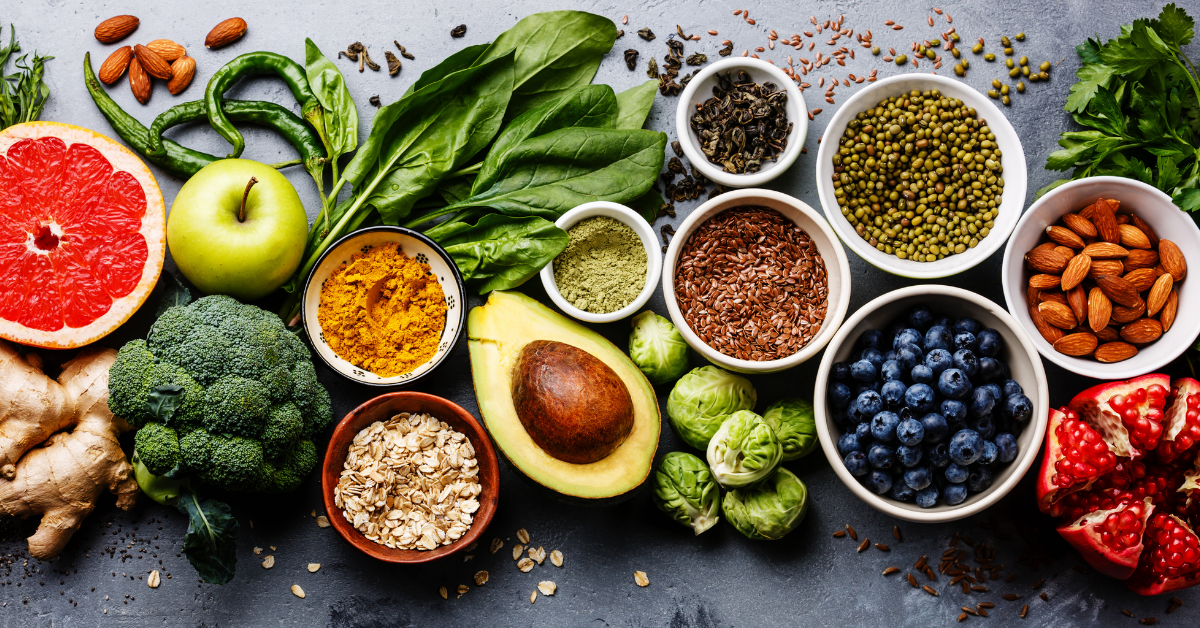MY MENOPAUSE DIARY
Nutrition that soothes the soul

Fiona Catchpowle
14 June 2021
It’s called #RealFood
Hormonal shifts, such as perimenopause, can create a cascade of inflammation in our minds & bodies. Inflammation adds to symptoms in a negative way. Our primary objective therefore is to find ways to calm and soothe our systems. Nutrition choices are fundamental in that support process. The options are simple and very sustainable.
Nothing fancy or complicated is required to nourish yourself at any point in your life. It’s called real food. Food that you can grow, catch or kill. Simple. If it requires heavy plant machinery to process or re-shape it, then don’t eat it. No fancy pants ‘diet’, no complicated programs or choosing foods from long lists, just simple, real food. If you start there it removes a lot of the foods that will be adding to your inflammation. [Check out these guides from the Public Health Collaboration].
If it has a label with a list of ingredients, don’t eat it. When you pull a carrot out of the ground it doesn’t have cooking instructions written on it. Microwave meals don’t grow on trees and you certainly cannot go foraging for dinosaur nuggets.
Whilst the ovarian decline process we call menopause transition, is not a disease, we know for certain our minds and bodies do not feel at ease. The fluctuations of our ovarian hormones, colliding with other co-factors triggers a domino effect that, at times, can feel fairly draining and deflating. When you’re feeling low you certainly don’t need anything complicated to cope with. It makes sense therefore to keep it simple. Whilst you can prepare fabulous dishes with taste sensations galore, in the middle of a perimenopause crushing fatigue episode, it really is not at the top of your list. Don’t add extra stress to your daily activity by trying to be Nigella. But, more importantly don’t add further inflammation by eating processed, high in digestible sugars and fake fat food, for the sake of convenience.

Absence of disease does not mean you are healthy
– you’re just getting away with it for now.
How do you start a simple real food solution-focused way of eating?
- Plan your shopping list – fill your basket with only foods you could grow, catch and kill, if you had a big enough garden. Imagine you were self-sufficient, adopting restorative methods, what would you have on your farm?
- Plan 3 simple real food meals – if a whole week of real food feels like a huge step, start with just a few. If you consider that on average you will eat 3 meals a day, 7 days a week, that’s 21 meals. I’m sure you could easily make a few of those meals real food
- Include herbs, seeds and spices to add flavour and nutrients – use natures store cupboard to make the simple sensational, with ease.
With a little planning it doesn’t have to take up brain space, which let’s be honest can be lacking during perimenopause. Time wise, with a little thought, it’s really easy to adopt. Budgets do not need to be blown. I recently kept a really close track of what I was buying, shopping at Aldi, and I spent only £35 per week for a nutrient dense list of foods that were simple and easy to prepare, and very delicious.
It’s not fair to talk about peri-meno nutrition without mentioning weight management. I experienced spontaneous meno weight gain, whilst eating a healthy diet and moving often. Was I bitter and twisted? Absolutely! Did I know about how oestrogen influences metabolism and fat deposition? Not at the time, but it was one of the first pieces of the puzzle that I worked out.
The science shows us very clearly in numerous pieces of research going back decades that oestrogen plays a role in many many parts of our biology. One of its talents is in appetite and eating behaviour, fat metabolism and energy expenditure (1). We also know that oestrogenic actions in the brain prevent obesity (2). Clinical trials and animal studies have revealed that loss of circulating estrogen induces rapid changes in whole body metabolism, fat distribution, and insulin action (3).
It is really important to understand that any nutrition advice aimed at all women, is not accurate for midlife women. A peri-meno body will respond differently to the same foods when compared to a premeno body. It’s in the science, it’s a fact.
There are adaptations to the nature of the nutrients that will serve you better if meno-weight management is something you feel you want to address. Again keeping it simple, and real food focused, you will find that increasing the total amount of quality protein and reducing total starchy carbohydrates of benefit. It’s not complicated but it does require a little more attention. I know because I’ve done it. Not only did my way of eating reduce symptoms but I also lost 15kg during the time when, retrospectively, my symptoms were near their worse. It’s all about working with your hormones, not against them. Not just your oestrogen, but your cortisol and insulin.
My advice is to start with real food and nourish your peri-meno body first. Make sure you are supporting yourself with nutrient dense foods and reducing inflammation wherever possible. This is part of a whole person approach and must be sustainable. You are the expert in you. You know what you like to eat and no plan or program can make you eat real food until you find what works for you.
“Eat food made by men in white coats, you’ll see men in white coats.”
Conversations are key in understanding what is going on in your peri-meno body. It can feel quite lonely at times and just exhausting. I know, I’ve been there, and successfully navigated out the other side. As a Menopause Doula my role is to guide and support you. Often we can’t see the word for the trees, and sometimes it’s the simple things that need a small tweak. In my opinion perimenopause is not a one woman job. If you would like one to one guidance and support on perimenopause in general or specifically peri-meno eating for symptom relief and weight management, schedule a FREE call and let’s have a chat. Here’s my diary.
References:
- https://www.ncbi.nlm.nih.gov/pmc/articles/PMC3866684/
- https://www.ncbi.nlm.nih.gov/pmc/articles/PMC6066788/
- https://www.ncbi.nlm.nih.gov/pmc/articles/PMC4391691/
You can find out more about the real food movement via the Public Health Collaboration website or lectures on YouTube.
a menopause evolution
How can we support women?
A recent survey by showed that a staggering 60% of women said they did not feel comfortable discussing the menopause with their GP. Currently, when huge hormonal shifts such as perimenopause occur, women are often left incredibly confused about their health with no clear concise guidelines as to how to navigate this time of their lives independently. This is heart-breaking. We passionately believe that every woman should be enabled with relevant and meaningful knowledge about their hormone highway in order to make informed health-care choices.
Making Sense of Menopause is an innovative seminar that will enable those working with women on a daily basis to create a positive environment for their clients around the topic of perimenopause and beyond. Menopause matters to your clients, so it makes sense for it to matter to you too. Menopause is not complicated in real terms, yet the confusing conversations taking place would have you believe otherwise. We are looking to work with and support individuals who have a thirst for education and value quality information.
Use coupon code EARLYBIRD before 18th June for a £10 discount
